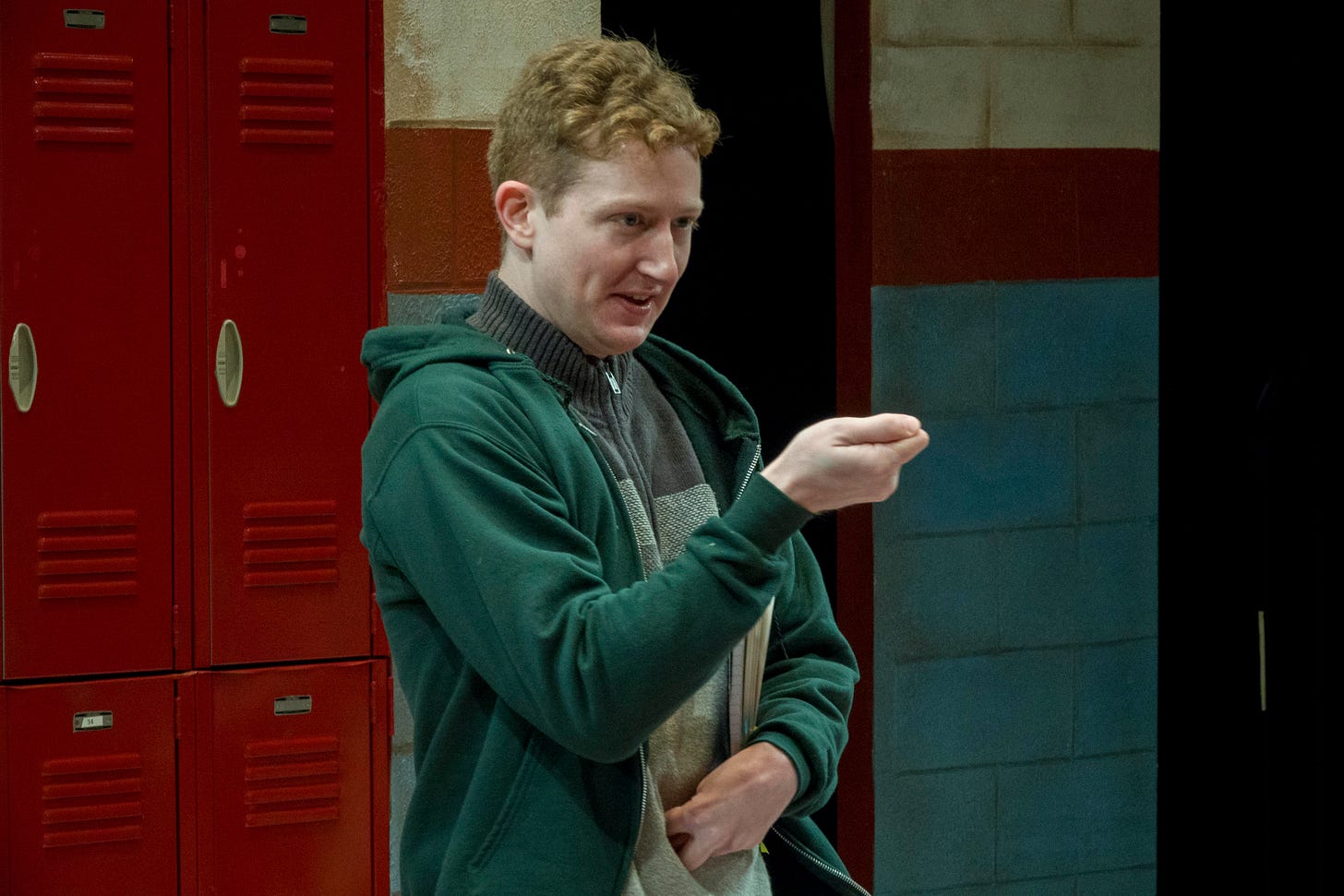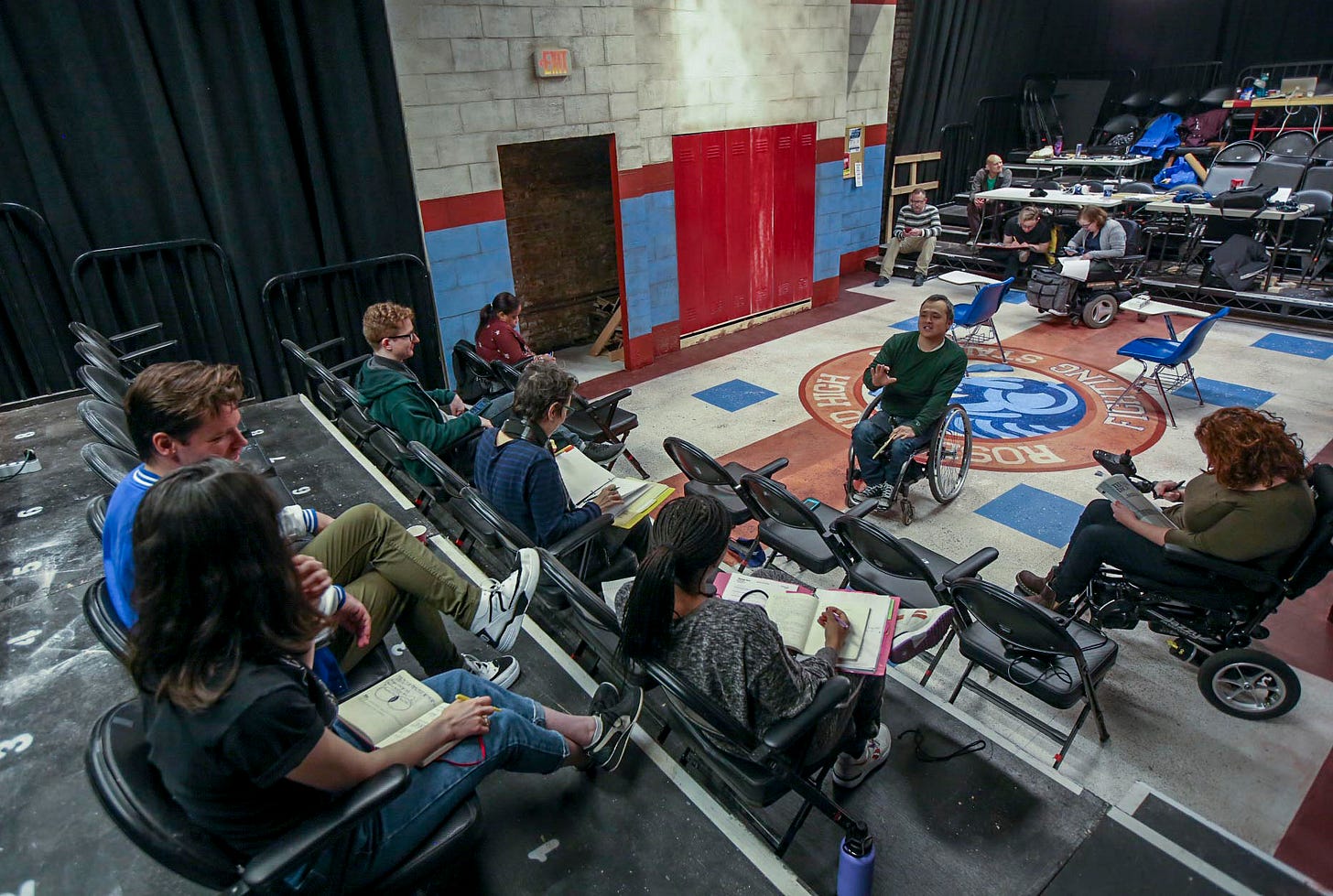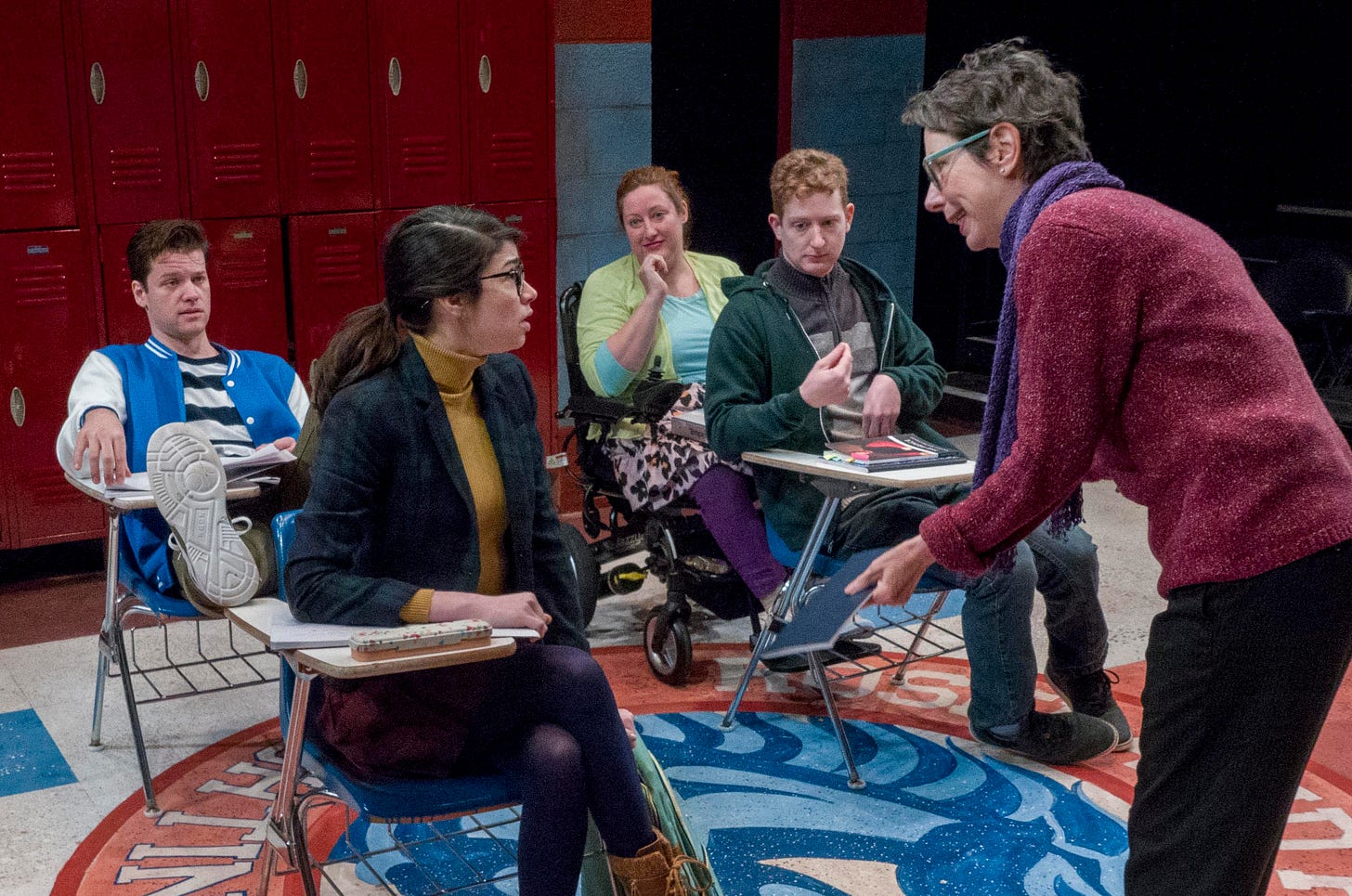Theater Wit to offer remote streaming tickets for “Teenage Dick”
Ticket buyers will have the choice to attend in person or stream a recorded performance at home.

MacGregor Arney as the title character in Theater Wit’s Teenage Dick. Photograph: Charles Osgood
UPDATE Monday, March 16: In the wake of the governor’s Sunday order to close restaurants and bars, Theater Wit has modified the plan described below. The company will film a performance on Monday evening with a small, invited house, which will become the recording available to stream at every “performance time” starting Wednesday, March 18. There will be no further live performances. In a statement, Theater Wit said it “has committed to paying full performance rates to all cast and crew for the duration of the run.”
As large theaters have cancelled shows and temporarily shut down in the two days since Gov. Pritzker issued new guidelines to slow the spread of coronavirus, smaller venues (with capacities under 250) have so far been left to make their own decisions about what to do. (Find a running list of what’s canceled and what isn’t here.)
On Saturday afternoon, Theater Wit announced a hybrid solution for its production of Mike Lew’s Teenage Dick, which began previews March 6 and is scheduled to open Wednesday, March 18. The company will continue with live performances as scheduled, though with the audience capped at 40 people in what’s normally a 98-seat house. (Teenage Dick happens to be the only show performing in Theater Wit’s three-theater building at the moment, so no other audiences will be present.)
But ticket buyers can also choose to view the play from the comfort—and physical isolation—of their own living room. Through a special arrangement with signoff from the production’s various stakeholders—Lew and his agent; publisher Dramatists Play Service; director Brian Balcom and the cast; and Actors’ Equity Association—Wednesday’s opening night performance will be captured on camera (actually two cameras, for closeups and full stage coverage).
For each subsequent performance, ticket buyers have the option of attending in person, or purchasing a Vimeo stream of opening night, which they’ll be able to access using a password emailed to them 10 minutes before the start of performance. Tickets are $28 for remote viewing, or $30–$42 for in-person. I spoke with Theater Wit artistic director Jeremy Wechsler on Saturday about how the plan came into being.
Kris Vire: I wanted to call this a “livestreaming” experiment, but it’s not quite that, is it?
Jeremy Wechsler: It’s more of a “staggered stream.” We have to do this under the parts of the experience that Equity is allowed to contract with actors for. We’re allowed to film one live performance. And then to accommodate for everyone’s safety concerns, we can re-use that live performance for people who don’t want to come see the show [in person]. So it’s not livestreamed from the theater every evening.
KV: Every broadcast will just be the opening night performance.
JW: The actors will still be performing the play for people who want to come see it in person. But they can tune in, as it were—buy a ticket to see the show remotely. And then people who have bought a ticket to see the show [at the theater] can also tune in remotely if, say, they get a sniffle—stay fucking home.
KV: It seems like you were able to get everyone on board very quickly for this. What were the hurdles you had to clear?
JW: Everybody was being extremely responsive at this moment. We had to discuss the process with Dramatists, the play publisher; Mike Lew and his agent; and Actors’ Equity. I’d originally asked them if we could just livecast straight from the theater, but Equity prefers that we have a recording that we replay. But Equity has been brilliant. We’re still waiting for the final agreements, but the intent is to preserve as much of the performance experience as possible. We can sort of lightly pop people into the audience, in the room, but then we’ll have this alternate path if people are nervous. If nobody comes [in person] on a given evening, the actors don’t perform to an empty room. They’re just on call, contractually, so they’ll just be paid their regular salary.

Director Brian Balcom, in green sweater, speaks to the cast of Teenage Dick in rehearsal at Theater Wit. Photograph: Charles Osgood
KV: Given the nature of the play and its relationship to disability, and based on my previous conversation with Brian Balcom, I know that audience accessibility was already front-of-mind. Is this broadcast idea something you as a group were thinking through even before the coronavirus became a factor?
JW: We were planning a sensory-relaxed performance. Basically, for that I was going to attempt to livestream from a fixed camera position for the performance that evening, for people who just can’t get out to the theater. I hadn’t worked that out yet with Equity because that wasn’t until April. And this is all pre-virus. But I was concerned that, you know, one of the challenges for accessibility is people being able to physically get to a theater. So I was going to try to get permission, given the content of the play and this one performance, to do this. But I hadn’t started that process yet.
But we had actually done that for The Realistic Joneses for rehearsal, because you can do this for rehearsal and we’d done it with Will Eno. And the equipment worked pretty well to basically have a kind of livestream connection that he could watch and comment on with only a minimal delay. So since we had used it to telepresence playwrights into the theater, why not audience.
KV: The process you landed on seems like it could be a model for others going forward, at least as long as the social-distancing situation continues.
JW: I think where it’s valuable, honestly, is for everything that was mid-production when this hit. If you’re just starting production, I don’t know who will choose to do this because we don’t know what the return is. And it’s not quite the same, obviously; there’s parts of the theater experience we can’t replicate.
And I don’t think it’s Equity’s intent to create a pay-per-view contract. This is all directly tied to social distancing and the coronavirus, and everything is term-limited. They’re being super fast and responsive, but they’re not trying to set any kind of future precedent for telepresencing. Countrywide, I don’t see people going into production so they can do a performance in front of a live audience once and then just rebroadcast it during these set times. But I think it’s a super useful thing for insurance.

From left: Ty Fanning, Sarah Price, Tamara Rozofsky, MacGregor Arney and Liz Cloud in Teenage Dick at Theater Wit. Photograph: Charles Osgood
KV: Right. Just here in Chicago, there were so many shows that were already in tech or even in previews, moving toward an opening in the next few days, that now may never get to open in front of an audience.
JW: Yeah. This requires a lot—it requires some coding on our part, because we have to limit the number of people who can see the stream. We have to make sure we have a kind of shifting password protection on the stream. We have to make sure we don’t sell more tickets than we have capacity for in the theater.
KV: So the total number of viewers plus in-person audience members has to be limited to the same number of actual seats in your house.
JW: Oh, yes. You’re still buying a ticket to this performance, in its way. It’s not like a Wrestlemania, 10 million people can buy a ticket. We’re still limited by those restrictions, otherwise it’s definitely a SAG streaming contract, and theaters just can’t play in that space with that kind of reach. So we have kind of a product chain where you have to have one performance with cameras; you’re allowed to kind of digitally tweak things a little bit, but you can’t change the lighting, the sound cues—you can’t make a TV show. It has to be in a theater with the same context for anyone who’s present.
KV: Still, it’s remarkable that this has been able to come together so quickly.
JW: I think it’s a heartening gesture. The number of players in the community who are all trying to figure out what to do, to salvage as many jobs and as much social continuity as possible, is really making people go above and beyond what they would normally worry about considering. At no point has any conversation been remotely adversarial. I was like, “Hey guys, I have this crazy idea. What do you think?” I mean, it took Equity maybe two days to come up with the outlines of this agreement, which is remarkably fast for them, procedurally. They clearly spent a huge amount of effort. I’m hoping they did it for a national model and not just for this tiny little theater. But they want to preserve jobs, you know, they want to make sure that their members stay working.
Teenage Dick opens Wednesday, March 18 at Theater Wit. Remote viewing becomes available with the Friday, March 20 performance. Visit theaterwit.org for more information.
Thanks for reading! This is the free edition of Storefront Rebellion, a newsletter about Chicago theater by Kris Vire. Send tips and feedback to kris@krisvire.com, and if you know someone you think would enjoy this newsletter, feel free to forward this to a friend.



